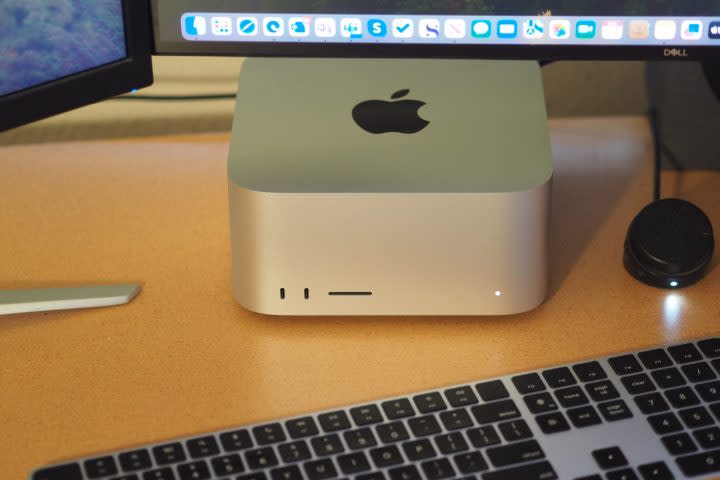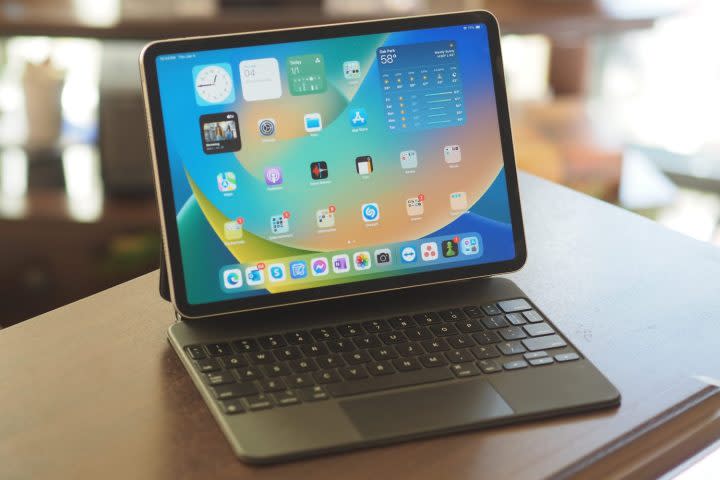Apple has backed itself into a corner

Apple is rumored to finally be updating its new iPads at its forthcoming May 7 event. While this may come as a relief to anyone who’s been patiently waiting to upgrade their iPad Pro or iPad Air, a new report has thrown the whole situation into confusion.
That’s because the latest Power On newsletter from Bloomberg reporter Mark Gurman claims that the upcoming iPad Pro will contain an Apple M4 chip. On first blush, that doesn’t seem all that unusual — the iPad Pro has come with an Apple silicon chip for years, after all. But here’s the wrinkle: this launch plan would mean the iPad will get an M4 chip before the Mac, and that has all kinds of weird implications. By delaying the iPad for so long, it looks like Apple has left itself with a very odd update cycle for its chips this time around.
The end of the M3 Ultra?

Ever since the first Apple silicon chip was released in 2020, events have followed a predictable pattern: Macs get new chips first, followed by iPads sometime later. Apple silicon chips were initially introduced as Mac chips, and that has always meant they’ve found their way into the Mac before any other devices.
But so what if the iPad Pro goes first this time? Does it actually matter? Well, the answer is a definite yes.
For one thing, if the M4 debuts in May, it all but guarantees there will not be an M3 Ultra chip. In case you’re out of the loop, we’re still waiting for this high-end chip to make an appearance. The Mac Studio and Mac Pro — where the M3 Ultra would be deployed — are still using the previous-generation M2 Ultra from 2023. Apple is already well into the M3 generation, with the M3, M3 Pro and M3 Max chips all outfitted into current Macs.
The reason that the M4 might preclude the M3 Ultra is that the Mac Studio was expected to be updated at Apple’s Worldwide Developers Conference (WWDC) on June 10. But if the next-generation M4 has already launched by that point, there’s no way Apple will release a previous-generation M3-series chip in a device that is meant to be one of the most powerful computers of its kind. Doing so would imply that it is instantly outdated and using old-gen chip architecture tech, which won’t exactly endear it to its demanding professional target audience.
But if there’s no M3 Ultra, that suggests that the Mac Studio and Mac Pro probably won’t be updated for another year. That’s because Apple sticks to a strict order for its chips: base level chip (M1, M2, M3), then Pro and Max variants, then the top-end Ultra chip. Once they make the jump to the next generation, there’s no going back. At least, that’s how the update cycle has played out so far.
With that in mind, I can’t imagine Apple will mix up the order so that it goes M4, then M4 Ultra at WWDC, then the M4 Pro and M4 Max sometime later. It just doesn’t match the ascending order of power Apple prefers to employ.
A long wait for Pro users

If the Mac Studio and Mac Pro don’t appear this year, that would seem to directly contradict an earlier report from Gurman. In January, Gurman claimed that Apple was planning to update the Mac Studio at WWDC, then launch a new Mac Pro later in 2024.
Yet, even the usually reliable Gurman seems unsure of this timeline. In April 2024, he released a new report that alleged that the M3 Ultra might not actually appear this year after all, claiming that “at least some of Apple’s high-end desktops will bypass the M3.”
With the apparently imminent launch of the M4 iPad Pro, it now seems more likely than ever that professional Mac users will have to wait until 2025 for updates. And that’s surely not going to sit well with them.
It all comes down to the iPad

So, what’s going on? To me, it looks like Apple’s hand has been forced by the lengthy delays the iPad has faced recently. That’s because 2023 was the first time in the device’s history that it went an entire calendar year without any updates, reportedly due to manufacturing delays and setbacks.
Apple often likes to release new iPads in the spring or fall, while software comes in the summer and new iPhones and MacBooks launch in the autumn, as this plan gives each product segment time to breathe. Due to that schedule — and the already lengthy delays to the iPad line — Apple would face pressure to announce new iPads now or wait even longer.
But why not just launch a new iPad Pro with an M3 chip instead of throwing everything into disarray by using an M4? Gurman says it’s so that Apple can spend WWDC talking about how the M4 allows all kinds of new artificial intelligence (AI) features in iOS 18, and that seems like a fair assessment.
But there might be more to it than that. We’ve heard that Apple wants to move to an annual chip upgrade cycle for its Apple silicon products, and it could be that the company wants to tie each chip to a calendar year. Three M3 chips debuted in late 2023, and if Apple really wants to make this release schedule switch, 2024 must become the year of the M4.

Alternatively, it could simply be that the M4 is ready to go, and Apple wants to get it out of the door in order to keep its rivals at bay. The growing buzz around Qualcomm’s new Snapdragon X Elite chips and AI capabilities is certainly reason for concern. With this annual upgrade plan coming online, Apple might be able to churn out new chips faster than before. There simply might not be time to hang around waiting for the M3 Ultra.
Whatever the case, this whole situation has led us to where we are now, with the iPad Pro possibly getting the M4 first and professional Mac users potentially having an even longer wait for updates. The other option is that Gurman is wrong, of course, and that the upcoming iPad Pro update will move to the M3 instead of the M4. This would certainly allow for a longer runway for Mac updates in the M3 generation.
Either way, we can hold out hope that Apple will release the M4 Ultra in Pro-grade Macs later this year, but that would mean a seriously compressed timeline, with the M4 Pro, Max and Ultra all squeezing into a mere six months.
If anyone can pull it off, it’s Apple, but given how it struggled with iPad delays last year, it’ll really have its work cut out to make it happen. That all means the next few months could make for seriously intriguing viewing.

